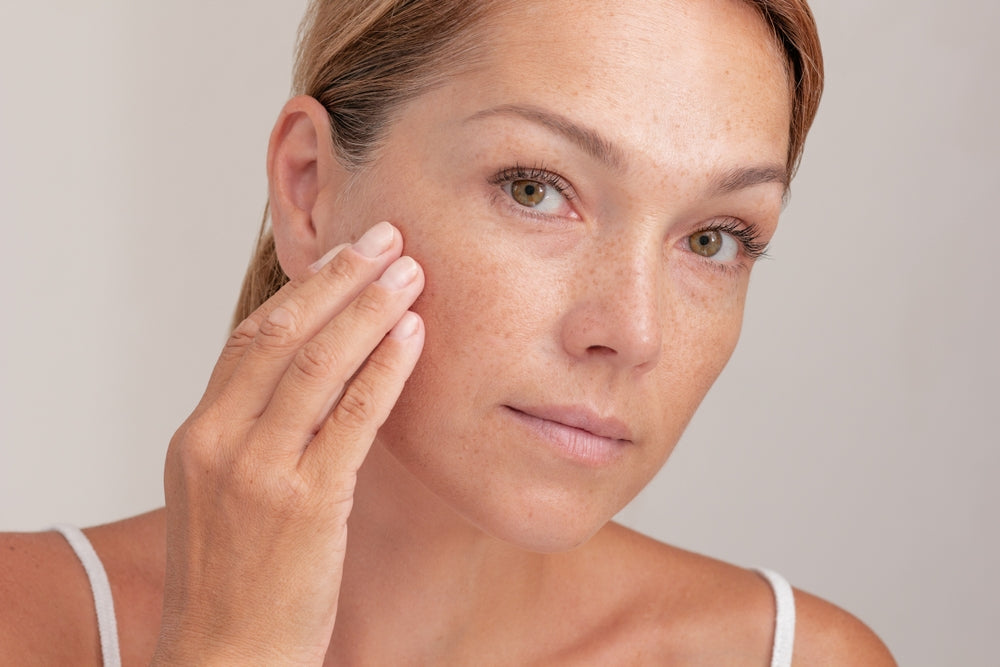The skin is a complex organ that acts as a protective barrier against the environment, so it’s important to keep it healthy. Different skincare and treatments are needed for different skin types but not everyone knows what type they have. Let’s analyze the different skin types so that you can have a better understanding of your skin and its needs.
Why is it Important to Know?
Knowing your skin type will help you find the right products. For example, dry skin needs a little extra moisturizer to reduce flaking and irritation while people with oily skin should use a lightweight, oil-free moisturizer. People with sensitive skin should pay extra attention to the ingredients in their skincare products and avoid harsh chemicals or abrasive exfoliants.
How to Determine Your Skin Type?
If you’re uncertain about your skin type, we encourage you to take our quick online Skin Quiz. Your results will also include a customized skincare routine with products specifically recommended for different skin types and skin concerns.
Skin Types
There are five main skin types defined by the American Academy of Dermatology. We’ve also included acne-prone skin since it is a common concern and one that requires specialized skincare needs.
Oily Skin
Oily skin is caused by excess production of sebum. Although this oil is naturally produced by the skin, overproduction creates a shiny film on the surface of the skin. Oily patches are commonly found on the “T zone” around the forehead and nose and the chin because there are more sebum oil glands in these areas. Excess oil can collect in the skin’s pores, making people more prone to acne.
Dry Skin
On the other hand, people with dry skin do not produce enough sebum. Dry or dehydrated skin may develop a rough texture with flakiness or scaling. When the skin is dehydrated, it feels tight and can make fine lines more noticeable.
Normal Skin
Normal skin has the right balance of sebum, meaning enough oil is absorbed into the skin to maintain its elasticity and glow without a shiny excess. People with a normal skin type typically do not have enlarged pores and their skin has a smooth appearance.
Combination Skin
Combination skin includes a mix of oily patches in the T-zone and chin with dry patches on the cheeks. Oiliness and dryness can fluctuate with weather changes, stress, or hormonal fluctuations. Proper cleansing and hydration with different products for different areas of the face are often necessary to maintain healthy looking skin.
Sensitive Skin
Sensitive skin can exist on its own or in combination with oily or dry skin. Sensitive skin is easily triggered by fragrances, dyes, and certain product ingredients that can cause allergic reactions. Redness, itchiness, and a burning sensation are common symptoms for people with sensitive skin, especially when exposed to irritants. Someone with a sensitive skin type is born with it and is different from sensitized skin, which is a skin condition that can be a result of factors that contribute to an impaired barrier.
Acne-Prone Skin
Acne-prone skin is often associated with oily skin. Frequent and persistent acne breakouts, whiteheads, and blackheads are common for people with this skin type. Exfoliating skincare products with glycolic acid and salicylic acid are often helpful when combating acne, but medical treatment from a dermatologist might be needed for cysticacne.
Skincare Products Tailored for Your Skin Type
At Epicuren Discovery, we believe in science-backed skincare that will successfully help with your individual skincare goal. Shop online today and build your customized skincare routine with specially tailored products for every skin type.
FAQs
- Can your skin type change?
- Skin type does change for many people. During puberty, teenagers often have oily or acne-prone skin, but this might improve as they get older and hormone levels balance out. Natural aging may also cause the skin to get drier. More immediate changes in skin type could be linked to weather changes and stress.
- How can I check my skin type at home?
- Use our Skin Quiz to check your skin type and home and get immediate skincare recommendations.





